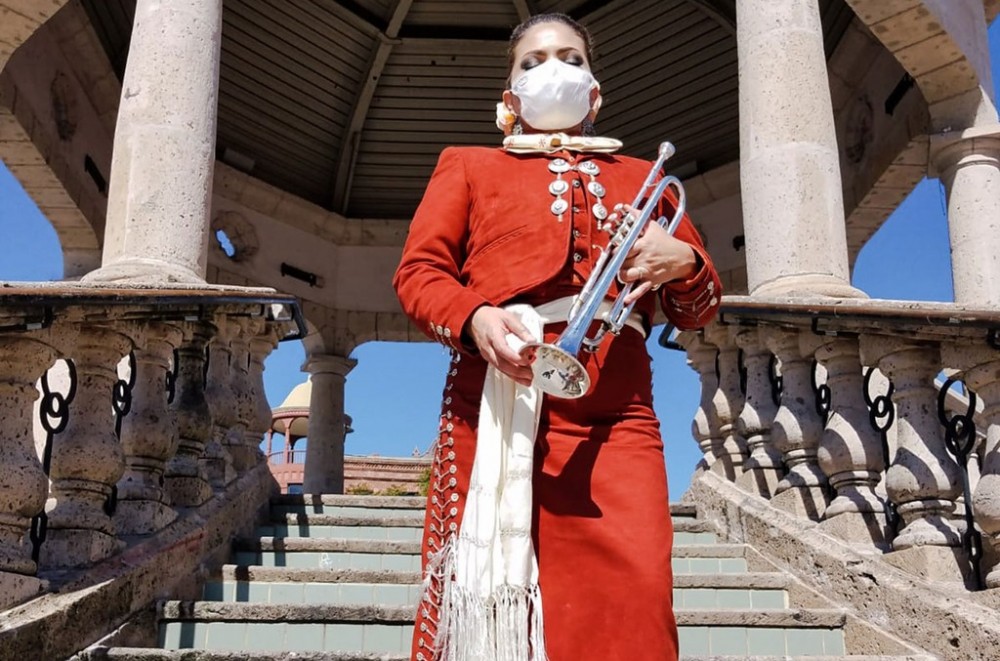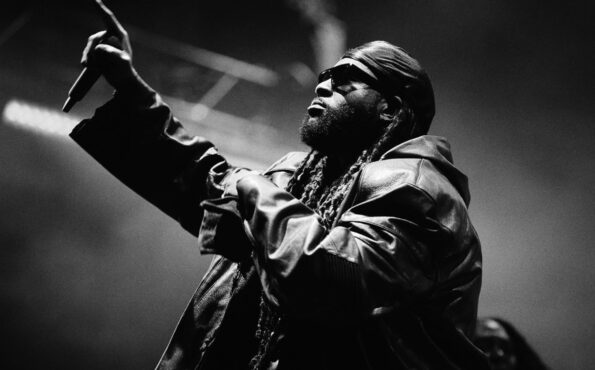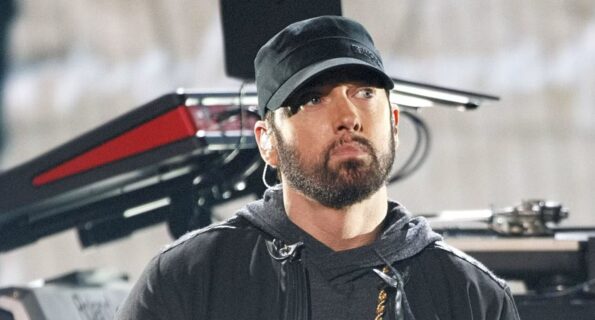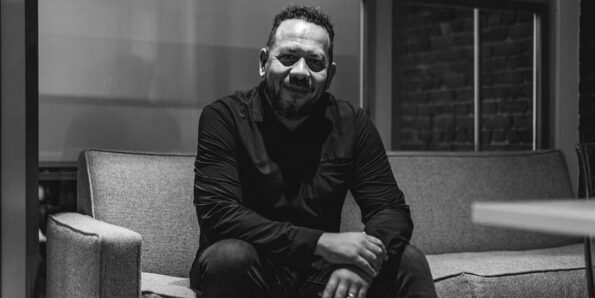In big mariachi markets such as Los Angeles and Chicago, no gigs means no pay.
Mariachi Lindas Mexicanas’ Maricela Martínez’s last paid gig was March 17, right before the COVID-19 pandemic essentially canceled any and all sorts of social events deemed the bread and butter for mariachi musicians.
“After everything got canceled, I didn’t even want to even open my case and get my trumpet to practice,” she says. “I thought, ‘What for?'”
From Cinco de Mayo to Mother’s Day followed by back-to-back quinceañeras and weddings, May traditionally kicks off peak season for mariachis, but it’s safe to say that this month has been the opposite of busy for a community that depends heavily on gigs to be able to make a living. In big mariachi markets such as Los Angeles and Chicago, no gigs means no pay.
Martínez, director, singer and trumpeter for L.A.-based all-female Mariachi Lindas Mexicanas, says that on average, her ensemble plays more than 300 events per year, with May being the busiest month. “When you live in el Norte (in the north) and don’t work for a few days, that throws you off. We’ll be playing catch up for a while,” she says.
Jorge Alvarez, director of Mariachi Los Reyes (Los Angeles), echoes Martínez: “It’s when nos alinamos, we make the most money, because there’s a ton of work. On Cinco de Mayo, we’re each making at least $1,500 a day and even more for Mother’s Day. It’s been difficult.”
Playing from sunrise to sunset and going from performing at a baptism, to a funeral and a wedding all in the same day, mariachis have a chameleonic ability to adapt their musical repertoire to match any event.
But adapting to a new reality, one that has sidelined any sort of celebration for at least the rest of the summer, is not as easy. The loss of gigs is already taking a financial and emotional toll on the mariachi community.
“All of this happened without any warning,” adds Martínez, who played for the first time again on Mother’s Day, nearly two months since her last performance. “After March 17, which is when we essentially entered quarantine in L.A.], clients kept calling me to cancel or reschedule their events. I got really depressed the first two or three weeks.”
The lack of federal financial relief in L.A. has led to local mariachis taking it upon themselves to help distribute food and other essentials to older and more vulnerable mariachi musicians. These artists typically gather at Mariachi Plaza, located in L.A.’s Boyle Heights neighborhood, in hopes of getting hired to play at restaurants or private events.
Additionally, the Mariachi Plaza Festival Foundation (MPFF) in L.A. has also coordinated a food bag distribution event at Mariachi Plaza in partnership with the Organización de Mariachis Unidos de Los Ángeles (OMULA) and other local organizations. According to Frank Villalobos, president of MPFF, the food bag distributions at the plaza will continue until the end of June.
“Just like other musicians and artists who depend on their craft as their sole source of income, the impact has been devastating for Mariachi families,” Villalobos says. “Even if the economy opened today, it will take many months to recover emotionally, creatively and financially.”
Like L.A., Chicago is known for a thriving mariachi community that also depends on local gigs. Just as they were getting out of hibernation and ready to embark on their busiest season yet, mariachis in Chicago are facing a brutal reality check.
“People at parties think we play mariachi music as a hobby, but sometimes, that’s all we have,” says Juan Daniel Cervantes, a third-generation mariachi musician in Chicago who depends on his weekly gig at a local restaurant to pay for college, and whose father is also a mariachi musician.
“It’s been a struggle. Everyone at home is trying to pitch in to help financially. Winter is the worst season to be a musician here in Chicago, and I’ve learned how to save money for that,” Cervantes says. “But something like this, I hadn’t prepared for.”
In lieu of any live performances, he is teaching mariachi music classes on Zoom to earn some extra cash.
“I’ve been teaching elementary and high-school students through Zoom, but it’s impossible to stay in sync,” says Cervantes. “So we are now dedicating half an hour to each kid individually.”
Cesar Maldonado, director of Chicago-based Mariachi Herencia de Mexico and founder of Mariachi Heritage Foundation, a non-profit that aims to preserve the cultural heritage of mariachi music, has also been holding practices on Zoom for his mariachi ensemble — composed of teenagers from Chicago — and kids who participate in the foundation’s after-school music program.
“It’s important to learn as a group when you’re learning mariachi music. With Zoom, you can’t do that because there is a delay. It’s chaos,” says Maldonado. “You have to be in a room together so the guitarrón player is listening to what the guitar and vihuela player are doing, and it has to be cohesive.”
Tentatively set to take place June 28 at Chicago’s Millennium Park, the Mariachi Festival is considered the largest mariachi event in the U.S. and a place where renowned mariachi singer Aida Cuevas has performed. It is currently on “standby,” according to Maldonado, whose foundation organizes the event to fundraise for educational programs.
“In terms of mariachi groups, we’re independent artists, and there’s not a lot of support coming from anywhere,” Maldonado adds. “A lot of it will be on us to make the effort to survive this.”
In an effort to support independent workers, last week the Illinois Department of Employment Security made the Pandemic Unemployment Assistance (PUA) available to gigging musicians. Eréndira Izguerra, who sings and plays the violin in Chicago-based Mariachi Las Sirenas, hopes to benefit from that program.
“I applied for PUA and other programs, but I have not heard back from any of the resources,” says Izguerra. “I picked up a part-time job sewing masks at a Mexican artisanal shop in Pilsen neighborhood in the Lower West side of Chicago]. I reached a point where I accepted the rest of the year being ‘scratched off.’ I am unemployed for the remainder of the year in the things I based my career off of: performing and teaching music.”
As some mariachi await some sort of federal financial support and learn the ins and outs of virtual sessions, others are putting their charro suits back on and finding ways to remain active while following safety measures such as wearing face masks, gloves, and standing six feet apart from each other while performing.
Back in L.A., Cinco de Mayo and Mother’s Day called for more private and intimate celebrations where some mariachis were asked to perform. “The gathering had to be less than seven people. If it’s more, we won’t play,” says Álvarez (Mariachi Los Reyes). “And it’d be a mariachi ensemble of only six members. Typically, there’s 10 of us. And the client also has to pay us Venmo so there isn’t an exchange of anything between us.”
Martínez (Lindas Mariachis Mexicanas) will kick off their “social distance serenatas” by the end of May, playing at events with fewer than 10 people. Each guest will be required to wear a mask.
“Only until things get better,” Martínez says. “We keep going because it’s our job and our passion. We need to play to survive both financially and emotionally. The ship may be sinking, but we’re still playing.”




